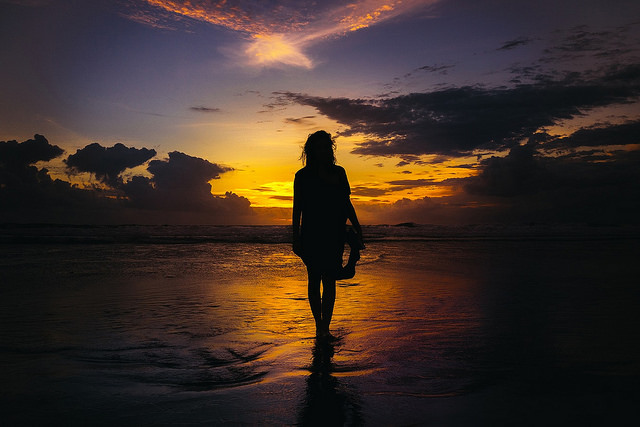This past weekend we were reunited to beloved neighbors and spent the evening dancing and deciding which flavor of cupcake was indeed the best. As far as weddings go, the kids mumbled sleepily on the way home, “this was the best, ever.”
With things like fresh, youthful love, supported by loving and close-knit families, it was easy to feel a sense of joy growing throughout the day. Supplement that with tasty drinks and a good Cha-Cha Slide, and you have the makings for 8 hours of non-stop smiling.
Partway through the dance party, the DJ asked the family to the dance floor and dedicated a song to the bride’s grandfather. Someone brought a chair for him to support himself, but he put his hands-up-and-shout’ed his way through the whole song with a smile as wide as the expensive tent. All of a sudden I became a blubbering mess over this man whom I’d met about twice, prior to the wedding. It made me so happy to see him surrounded by family, celebrating.
There was no survival story, that I’m aware of; no overcoming of a deadly disease, no fears of not making it to the wedding. He’s simply older, needs a cane, and wanted to dance. So he did. This wasn’t an episode that would become viral on Facebook.
How is it that a near-stranger dancing to a song played at every wedding could evoke such a sense of profound joy?
We often think of joy as a feeling we encounter when things happen to us or around us. We feel joy watching our kids play baseball, or when we enjoy an evening with friends. Those moments “bring us joy” we say.
I’ve been pondering joy, along with other virtues like faith, hope, and love. How and where do they exist? How do I experience more of them?
In the past, I treated these ideas as more of a topical solution; that when I’m feeling down, I simply apply a patch of joy to my arm and instantaneously feel better. People without joy just hadn’t filled their prescription. In a similar way, I’ve believed that I would need to “have more faith.” As if I could go out and get some faith cereal and eat it for breakfast so that it would strengthen me for the day. When I felt faithless, it was because I didn’t have enough. If I felt loveless or unloved, it was because love wasn’t given to me.
Krista Tippett writes in Becoming Wise about the sister virtue, hope:
“Hope, like every virtue, is a choice that becomes a habit that becomes spiritual muscle memory. It’s a renewable resource for moving through life…”
According to St. Krista, these virtues aren’t applied topically but grow from within. And it seems that the more you tap into it, the easier it gets to access.
I imagine joy to be less like a lake that you go to visit on a sad day, and more like the body of water that resides just below the surface of the earth. The moments of our life where you know you can feel joy – the baseball watching, the evenings of book club or girls night – those are like wells. They’re easy access points to drink the joy. But that doesn’t mean joy is only at the well. Joy is everywhere, under the surface.
The feeling of joy doesn’t happen to us, it overflows from within. Watching Pa dance wasn’t a reflection only of him, or the night. I was walking on shallow earth all evening, feeling close to the joy running under me, and at that moment I was able to poke a straw into the damp grass and drink the joy.
How much more joy – and love, and hope, and faith – would I experience if I stopped looking around for where it might land on top of me, and instead work those interior muscles of sensing that which already exists? How much more contentment would people of our culture encounter when we began to live knowing that what we’re looking for cannot be given to us, only discovered?
It’s safe – and even beneficial – to live expecting joy to squirt like geysers into your life. Maybe there will be moments when you’re walking through a desert, where it seems to be less prevalent, and that’s a time to ask the locals how to find what you need. But I’m confident the world – and humanity – was created with an endless stream of good things within it, just under the surface.



